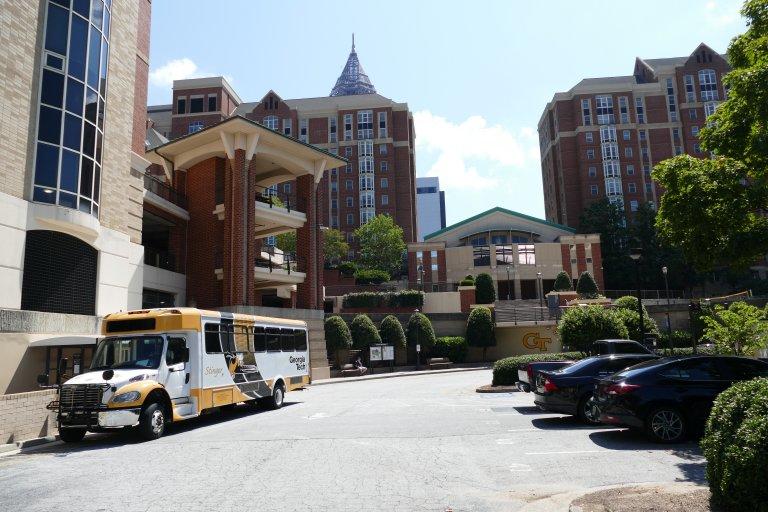
Caption
Not many students roamed the Georgia Tech campus near its student housing Tuesday as classes aren't set to resume until Aug. 17. A coalition of graduate students at Georgia Tech and other state universities are pressing the state Board of Regents to give them input into COVID-19 safety procedures. / Georgia Recorder
Credit: John McCosh


